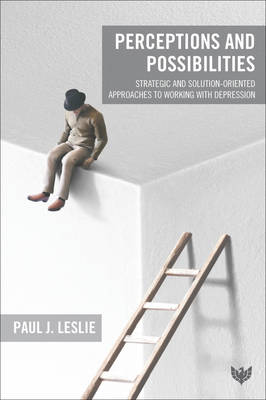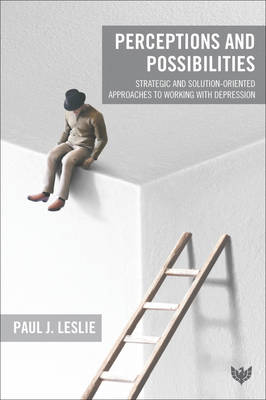
Je cadeautjes zeker op tijd in huis hebben voor de feestdagen? Kom langs in onze winkels en vind het perfecte geschenk!
- Afhalen na 1 uur in een winkel met voorraad
- Gratis thuislevering in België vanaf € 30
- Ruim aanbod met 7 miljoen producten
Je cadeautjes zeker op tijd in huis hebben voor de feestdagen? Kom langs in onze winkels en vind het perfecte geschenk!
- Afhalen na 1 uur in een winkel met voorraad
- Gratis thuislevering in België vanaf € 30
- Ruim aanbod met 7 miljoen producten
Zoeken
Perceptions and Possibilities
Strategic and Solution-Oriented Approaches to Working with Depression
Paul J Leslie
Paperback | Engels
€ 34,45
+ 68 punten
Omschrijving
This book will assist therapists in easily implementing the concepts of strategic and solution-oriented applications into one's therapeutic work with depressed clients. The focus of these brief therapy approaches is on the clients' resources and potential rather than on their deficits and pathology. These ideas have their roots in the work of Milton H. Erickson, the Mental Research Institute in Palo Alto, California, and Bill O'Hanlon's Solution Oriented Therapy. The methods and applications recognise the significance of how clients perceive their problems, the importance on assisting clients to be validated and understood in the realm of their experiences, and the creation of change in their views and actions concerning their individual situations. Perceptions and Possibilities is designed to assist therapists in finding new ways of moving their therapy sessions away from an entrenched focus on client pathology. Instead, therapists are encouraged towards brief and effective interactions with a focus on future-oriented possibilities. Paul Leslie presents established and cutting-edge research, colourful case studies, and stories told in everyday language to engage, educate, and aid mental health professionals. The aim is to enable them to understand how to easily adapt and apply creative and resourceful therapy interventions to help clients who are suffering from depression. This book is highly recommended for psychologists, counsellors, and psychotherapists, particularly those who are interested in exploring brief therapies, postmodern/Ericksonian approaches, and solution-focused, systemic, and strategic therapies.
Specificaties
Betrokkenen
- Auteur(s):
- Uitgeverij:
Inhoud
- Aantal bladzijden:
- 160
- Taal:
- Engels
Eigenschappen
- Productcode (EAN):
- 9781800131064
- Verschijningsdatum:
- 15/09/2022
- Uitvoering:
- Paperback
- Formaat:
- Trade paperback (VS)
- Afmetingen:
- 150 mm x 229 mm
- Gewicht:
- 13326 g

Alleen bij Standaard Boekhandel
+ 68 punten op je klantenkaart van Standaard Boekhandel
Beoordelingen
We publiceren alleen reviews die voldoen aan de voorwaarden voor reviews. Bekijk onze voorwaarden voor reviews.









